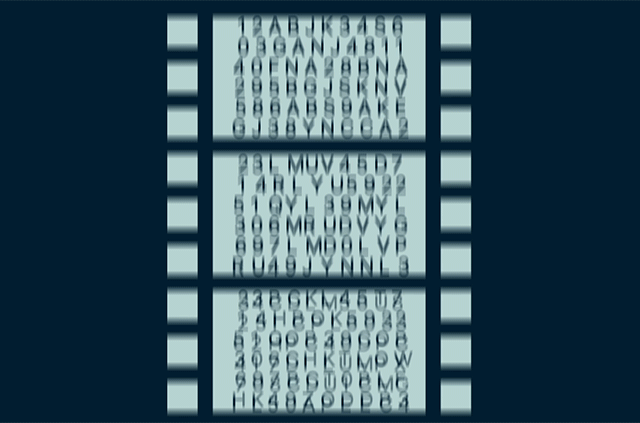Welcome to the ExpressVPN viewing lounge, where we’ll be presenting our favorite privacy-themed movies and TV shows.
While surveillance seems to be an intensifying issue around the world today, the concept has been explored for decades on the screen. Our selection of films and shows explores surveillance in numerous forms, from peering into a neighbor’s window to portrayals of dystopian, camera-filled futures that seem all too prescient.
The good news is most of these surveillance stories are still only in the realm of fiction. So grab your popcorn, sit back, and take comfort in the privacy we still enjoy!
[Interested in privacy? Sign up for the ExpressVPN blog newsletter.]
Warning: spoilers ahead!
Jump to our favorite movies and shows that portray surveillance:
1. Nineteen Eighty-Four (1984)
2. Minority Report (2002)
3. A Scanner Darkly (2006)
4. Gattaca (1997)
5. Rear Window (1954)
6. The Dark Knight (2008)
7. Snowden (2016)
8. Enemy of the State (1997)
9. The Truman Show (1998)
10. Captain America: The Winter Soldier (2014)
11. Mr. Robot (2015-2019)
12. Black Mirror (2011-)
Top surveillance movies and shows
1. Nineteen Eighty-Four (1984)
Because of course this would be No. 1 on any list about surveillance fiction. Considered the grandfather of the dystopian genre, George Orwell’s Nineteen Eighty-Four is a seminal work of literature that’s becoming more relatable as time goes by. The book is studied the world over for its universal themes of war, propaganda, nationalism, futurism, censorship, and surveillance. Nineteen Eighty-Four is so influential that it has inspired dozens, if not hundreds, of works of dystopian fiction in the decades since its release in 1949, and contributed terms such as “big brother,” “thoughtcrime,” and “newspeak” to the general lexicon.
The most well-known adaptation of the book is the Michael Radford-directed version starring John Hurt as Winston Smith, which was released in…1984. The film is considered a solid adaptation of the book and maintains the bulk of the story’s themes.
Smith, like every other citizen living in the totalitarian superstate of Oceania, has very little privacy with his existence constantly being scrutinized by the Thought Police. Most homes in Oceania have a telescreen, a device that essentially functions as a television, security camera, and recording device. This allows the government to watch and record anything at will, which can then be used against citizens. Sound familiar? It should, since popular devices like Google Home, Alexa, and Siri are constantly listening to you.
Citizens are living in a constant state of fear and are actively encouraged to report on any suspicious activities of their neighbors and countrymen.
2. Minority Report (2002)
Based on the 1956 short story by Philip K. Dick, this Steven Spielberg-directed film follows the exploits of law-enforcement officer John Anderton (played by Tom Cruise) in the year 2054.
Anderton, a captain in Washington DC’s PreCrime department, works with “precogs,” people who are psychically able to predict murders before they happen. Precogs, and by extension the entire police department, essentially preside over a decentralized surveillance state, where both corporate and legal bodies have full access to any citizen’s information at all times. Unsurprisingly, everything goes awry and Anderton himself becomes the next identified suspect of a future murder. On the run, he has his eyeballs replaced in order to thwart detection through retina scanners across the city—all with the intention of clearing his name for a crime that hasn’t even been committed yet. Funnily enough, the UK government looked into the possibility of getting a similar program, based on artificial intelligence, off the ground. Thank goodness it never did.
During the film’s production, Spielberg assembled a think tank of consultants and futurists to determine what a possible 2054 could look like. The think tank accurately predicted the advent of technologies such as retina scanners, multi-touch interactivity, autonomous vehicles, gesture recognition and control, and targeted advertising. One of the most famous scenes involves Anderton walking through a mall, having his eyes constantly scanned by advertisements that then serve him personalized ads—ones that literally call out to him by name. John Underkoffler, a former MIT researcher and consultant on the film, has gone on record to say that the intention was to portray a world where privacy “was really a thing of the past.”
The most important theme from the film that remains relevant today is not of the implications of technological development, but rather that of surveillance and privacy and how our personal information could be used against us. The film does a masterful job at portraying a world where privacy is sacrificed for security.
3. A Scanner Darkly (2006)
The next entry in our list is another adaptation of a Philip K. Dick story. This one, however, takes us down a much stranger path.
In a dystopian vision of the near future, the U.S. government has lost the war on drugs. In response, a network of undercover police officers have been created to monitor and report on the rise of a new drug, called Substance D, which has swept the nation. Substance D is a powerful and highly addictive hallucinogen.
Protagonist Bob Arctor, played by Keanu Reeves, is one of these undercover officers. Arctor keeps his identity a secret by wearing a “scramble suit” that allows him to mask his appearance and voice. Unfortunately, in performing his duties as an undercover officer, Arctor has also become addicted to Substance D, which has made his grasp on reality tenuous at best.
Over the course of the film, we are shown that everyone in the undercover unit wears a scramble suit and nobody knows each other’s true identities, instead referring to each other using pseudonyms. Arctor’s pseudonym is “Fred.” In a strange twist of fate, Arctor is tasked with investigating Fred, which only adds to his already diminishing sanity.
This reminds us of the old adage “Quis custodiet ipsos custodes?”, translated as, “Who watches the watchers?”
4. Gattaca (1997)
In a polished but stark vision of the near future, your vocational aspirations, romantic partners, and social status will all be determined entirely by your genetics. Society is divided into two classes, natural-born and genetically enhanced humans. In order to become anybody of note, you must be genetically enhanced.
Protagonist Vincent Freeman, played by Ethan Hawke, is natural-born and dreams of becoming an astronaut at the Gattaca Aerospace Corporation. However, due to his status as a natural-born human and his genetic predisposition to heart failure, Freeman has endured a life of servitude to those of a higher caste.
Freeman takes on the identity of the genetically enhanced swimming star Jerome Morrow (played by Jude Law), who was paralyzed in a motor accident and now lives a life away from the public eye. In order to maintain the charade, Freeman maintains a fastidious routine of collecting Morrow’s genetic samples for use in fooling Gattaca’s genetic identification systems.
The film presents a terrifying look into the issues of genetic privacy and the repercussions of genetic discrimination.
5. Rear Window (1954)
Alfred Hitchcock’s Rear Window might be the oldest entry on this list, but the commentary on voyeurism and privacy is as relevant today as it was upon its release in 1954. The film stars James Stewart as photographer L. B. “Jeff” Jefferies, who is left wheelchair-bound after an accident. Jeff spends his days looking out of the rear window of his apartment onto a courtyard, observing the day-to-day lives of his neighbors, who keep their windows open for ventilation.
One night, Jeff hears a scream and shattering glass. Thinking nothing of it, he drifts off to sleep. Shortly thereafter, he is awoken by thunder and spots his neighbor Lars Thorwald (played by Raymond Burr) leaving his apartment and carrying a suitcase. The next day, Jeff observes Thorwald cleaning a knife and saw. From this point moving forward, things get stranger. Mrs. Thorwald goes missing, a neighbor’s dog is killed, and Mr. Thorwald grows increasingly suspicious in his actions and mannerisms.
Rear Window largely concerns the question of ethics and voyeurism, in that Jeff has taken it upon himself to act on what he perceives as a series of suspicious events—all entirely without hard evidence. This best example of this dilemma is demonstrated in a particular scene that has Jeff send his girlfriend, Lisa (played by Grace Kelly), into Thorwald’s empty apartment to illegally gather evidence. While this plays out, Jeff notices that Thorwald’s downstairs neighbor, “Miss Lonelyhearts,” is contemplating suicide and calls the police—but relents when she appears to change her mind. Thorwald then returns to find Lisa in his apartment. Jeff, still on the line to the police, reports a possible assault in progress in a frantic bid to ensure Lisa’s safety. Where can the line be drawn between Jeff’s casual observation and invasive voyeurism? Perhaps the issue here is that surveillance and breaches in privacy could be considered subjective based on our own judgement of imminent threats to our personal sphere of influence.
Looking for a modern take on the story? Try the 2007’s Disturbia, which follows a very similar, albeit contemporized, plot.
6. The Dark Knight (2008)
The second chapter of Christopher Nolan’s massively influential Dark Knight trilogy, The Dark Knight, acts as an allegory for the war on terror—specifically on the effectiveness of mass surveillance as a tool for societal protection.
The climax of the film sees billionaire Bruce Wayne/Batman (played by Christian Bale) establishing a sonar network, powered by all of the cell phones across Gotham City. This network enables Batman to see and track anything and anyone, which ultimately helps him to locate the villain Joker (played by Heath Ledger).
The implications of this city-wide network are clear—privacy takes a back seat to the interest of public safety. Perhaps this quote from Lucius Fox (played by Morgan Freeman), CEO of Wayne Enterprises, illustrates this sentiment best:
“Beautiful. Unethical. Dangerous. You’ve turned every cell phone in Gotham into a microphone. You took my sonar concept and applied it to every phone in the city. With half the city feeding you sonar you can image all of Gotham. This is wrong.”
7. Snowden (2016)
In June 2013, whistleblower and former CIA subcontractor Edward Snowden met with journalist Glenn Greenwald and released about 10,000 highly classified documents outlining that the National Security Agency (NSA), in conjunction with various Fives Eves agencies, were running a global surveillance program. The announcements sent shockwaves around the world. The 2016 film Snowden, directed by Oliver Stone, stars Joseph Gorden Levitt as Edward Snowden and tells the story of his personal journey towards making the leaks public.
In the course of his duties as a security subcontractor, Snowden learns of such invasions of privacy as implanting malware into governmental computers of U.S. allies (in the event that said ally eventually becomes an enemy) and surveillance programs that provide real-time information that aid in drone strikes on suspected terror suspects.
What sets Snowden apart from every other entry in this list is that it is based on real-life events and entirely factual. Which makes this film the scariest, despite the fact that it’s not a horror film.
8. Enemy of the State (1998)
Hot off the heels of the wildly successful smash hits Independence Day and Men in Black, Will Smith takes a dramatic turn playing lawyer Bobby Dean, who is caught up in a taut game of cat and mouse with relentless NSA agents. A key part of the plot involves the introduction of a piece of legislation that would increase the U.S. government’s ability to surveil the country’s populace.
Following its release, the NSA’s then director Michael Vincent Hayden was less than enamored of the film’s portrayal of the intelligence agency. However, following Edward Snowden’s 2013 revelations of global NSA spying, public opinion on the matter has shifted in line with the film’s core message.
On a side note, Enemy of the State also has the dubious distinction of having one of the dumbest surveillance analysis scenes in a film or television series—although the CSI franchise could give this a run for its money. It’s better if you see it for yourself.
9. The Truman Show (1998)
One of the “lighter” entries in this list, The Truman Show tells the story of Truman Burbank (played by Jim Carrey), a man who has unknowingly spent his entire life as the star of a reality television program. While not outwardly dystopian, The Truman Show has its confronting moments.
Unbeknownst to Truman, the town in which he resides is actually a giant film set, populated entirely by actors and extras. From Truman’s birth, audiences around the world have followed his entire life journey. Situations are engineered in order to elicit specific emotional reactions—all for the sake of ratings.
Ultimately, Truman has no real control over his life situation and almost no privacy, given that his every move is recorded and broadcast.
In the 20 years since the film’s release, its subject matter has been labeled as “prophetic,” in that it has unwittingly predicted the effects of reality television, social media, and celebrity.
10. Captain America: The Winter Soldier (2014)
Captain America: The Winter Soldier is the ninth film in the Marvel Cinematic Universe and sequel to the 2011 film Captain America: The First Avenger.
Steve Rogers, aka Captain America (played by Chris Evans), is man out of time. Originally a soldier during the Second World War, Captain Rogers was frozen for 70 years before being reawoken in 2012. By the time this film begins, he has spent several years adjusting to life in the future and now works for a U.S. government security and espionage agency called S.H.I.E.L.D.
During a routine anti-terrorism mission to free hostages aboard a hijacked vessel, Captain Rogers discovers that S.H.I.E.L.D. has an ulterior motive: to steal data from the ship’s database. After confronting his superior, Director Nick Fury (played by Samuel L. Jackson), Rogers is informed about “Project Insight,” a mass-surveillance program involving Hellicarriers (massive flying aircraft carriers with spy satellites) designed to stop terrorist attacks before they happen. Towards the climax of the film, the Hellicarriers are hacked and innocent citizens are targeted by its weapons systems.
For a film set in a sprawling science-fiction and fantasy universe, Captain America: The Winter Soldier is a remarkably grounded political thriller with an entirely believable premise.
11. Mr. Robot (2015-2019)
Heralded as one of the most realistic portrayals of hacking in mainstream media, Mr. Robot follows the story of cybersecurity engineer and vigilante hacker Elliot Alsderon (played by Rami Malek). In addition to being a mind-bending tech thriller, Mr. Robot raises some important questions about cybersecurity and privacy. Namely that certain hacking and privacy issues can be non-technical, including social engineering and password creation.
Producers behind the show have taken care to make the show as believable as possible by showing actual code, tools, and operating systems used by hackers. Eschewing genre tropes and cliches, Mr. Robot opted to demonstrate a variety of hacking techniques accurately—which makes a lot of sense when you consider the show’s hacking consultant is a cybersecurity expert.
In the words of Mr. Robot himself:
Privacy is a myth. All our actions are monitored.
New #MrRobot. TOMORROW. 10/9c. @USA_Network. pic.twitter.com/iOdY0HEmNa
— Mr. Robot (@whoismrrobot) October 31, 2017
12. Black Mirror (2011-)
No list about surveillance-themed media would be complete without a mention of Black Mirror. The British dystopian science-fiction anthology series is widely considered to be the rightful successor to The Twilight Zone (we’re choosing to ignore the 2019 iteration of the franchise) and The Outer Limits.
As an anthology series, each episode is standalone, produced and directed by a different team, albeit mostly written by series creator Charlie Brooker. Although episodes vary in genre, each one generally centers around themes of sociology and the consequences of new technologies.
Here are select episodes that demonstrate this:
The Entire History of You (Season 1, Episode 3)
In the distant future, a device called a Grain can be implanted into humans that records all visual and auditory stimuli through the eyes and ears. The story revolves around protagonist Liam (played by Toby Kebell) and his wife Fionn (played by Jodie Whittaker), and the suspicions of a supposed infidelity on Fionn’s behalf. This plays out as well as you’d imagine.
Be Right Back (Season 2, Episode 1)
Following the death of her partner, Ash (played by Domhnall Gleeson), in a traffic accident, Martha (played by Hayley Atwell) discovers that she is pregnant. During the funeral, Martha’s friend Sarah (played by Sinead Matthews) suggests employing the services of a new online business that uses text messages from a deceased person’s phone, along with their social media posts, to create an artificial version of that person. It gets weirder when Martha agrees to transfer the artificial “Ash” to an experimental android body.
White Christmas (Christmas Special)
Where to start with this one? John Hamm plays Matt Trent, a former dating coach. At the beginning of the story, Trent has been living in a cabin with roommate Joe Potter (played by Rafe Spall), but the two have barely conversed. It is Christmas Day and the two men begin to converse. Without giving too much away, what follows over the course of the episode involves stories of non-consensual consciousness transfer, unauthorized surveillance, and murder. Merry Christmas!
Shut up and Dance (Season 3, Episode 3)
Another episode where it’s better to go in blind. The story follows Kenny (played by Alex Lawther), who is blackmailed into a series of increasingly intense criminal acts after a video of him pleasuring himself is recorded by a hacker. While it raises some important questions of data privacy, it doesn’t end how you think it will.
USS Callister (Season 4, Episode 1)
Jesse Plemons stars as Robert Daly, the disgruntled co-founder of VR software firm Callister Inc. Daly is often overlooked in favor of co-founder James Walton (played by Jimmi Simpson), who employees feel is more approachable. While donning a meek and unassuming demeanor, Daly’s underlying personality is psychotic. He collects DNA samples from hated colleagues (using leftover coffee cups and other forms of refuse) to replicate their consciousnesses. For what purpose you ask? To upload them into his personal VR game builds at home—so that he can humiliate them at will.

Protect your privacy with the best VPN
30-day money-back guarantee


























Comments
I would add “The Lives of Others,” though it is in German with English subtitles. It is about Stasi monitoring a couple who are in the theater arts in the former German Democratic Republic. I would warn that some parts are dreary, but that was true of what I saw of East Germany. I am guessing that is intentional.
Many actors in this film were victims of Stasi and did it for less money than they would normally have commanded. For what it is worth, this movie won the Academy Award for Best Foreign Film in 2007, as well as numerous other awards.
You need to add “The Conversation” with Gene Hackman to this list.
I came here to say exactly this. The Conversation is the granddaddy of all the surveillance films that were to follow. The tradecraft is compelling. And the cameo by a young Harrison Ford before he became Han Solo is brilliant.
Haha, that’s exactly what I came here to say, too! It’s a nice list of sci-fi/fantasy/dystopian action thrillers, but few of these are actually “about” surveillance. “The Conversation” is not only 100% about surveillance (and, coming from an acoustics background, involves a genuinely interesting problem as the central plot point) but it’s just plain a great movie, a classic, far more than a lot of this list.
EXACTLY!
Yes The Conversation is by far the #1 Surveillance film.
Seen almost all of these and love them all <3
How about Eagle Eye?
Eagle Eye 🙂
great read both you and lexie kill it at will it seems after reading both of your stuff….. question though with you requesting my info to post here and expressvpn needing my account info aka all my personal shit, ( albeit I am a subscriber i just happen to like their ease of use and installation of similar protocols that I would configure. ), I’m just saying isn’t it ironic that you cannot anonymously subscribe to the anonymity providers? thank you for the great stuff and the lack of fluff.
oh and thank you to expressvpn for giving me the protection I need on and off the dark and clear web through a butt load of locations too like seriously way more than ill probably ever try but I appreciate it.
Sincerely, 89spades
A list about surveillance without “Person of Interest”? You should check it out;)
Exactly this. Person of Interest was the best! Root FTW